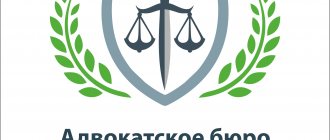The Constitutional Court clarified the rules for applying house arrest
On March 22, the Constitutional Court of the Russian Federation issued Resolution No. 12-P/2018 in the case of verifying the constitutionality of Parts 1 and 3 of Art. 107 “House arrest” of the Code of Criminal Procedure of the Russian Federation, which, in the opinion of the applicant, violate the fundamental law to the extent that they allow the election of a preventive measure in the form of house arrest in relation to a person accused of committing a crime of minor gravity, in the absence of conditions for election in relation to such a person is subject to a preventive measure in the form of detention, provided for in Part 1 of Art. 108 Code of Criminal Procedure of the Russian Federation.
The reason for the appeal was the following situation. By a resolution dated July 20, 2022, the Moskovsky District Court of St. Petersburg granted the investigator’s request to impose a preventive measure in the form of house arrest for the applicant, who was accused of committing two crimes under Part 2 of Art. 145.1 – non-payment of wages totaling over 30 million rubles. The maximum punishment for this crime does not exceed three years of imprisonment, and in accordance with Part 2 of Art. 15 of the Criminal Code of the Russian Federation it is classified as a crime of minor gravity. The appellate court upheld the decision.
On September 15, the applicant’s period of detention under house arrest was extended to four months – until November 17, 2022. And on November 9, he was finally charged with three crimes under Art. 145.1 of the Criminal Code of the Russian Federation, which resulted in non-payment of wages totaling about 78 million rubles, and the period of detention under house arrest was extended until November 24, 2022. Moreover, already on November 10, the investigator issued a resolution in which he petitioned the court to terminate the criminal case in connection with the full repayment of wage arrears by the accused and the imposition of a court fine on him.
On November 22, the defense’s request to change the applicant’s preventive measure in the form of house arrest to a bail of 500 thousand rubles was granted, and the criminal case was sent to the magistrate under jurisdiction.
In his complaint, the applicant indicated that the provisions of Parts 1 and 3 of Art. 107 of the Code of Criminal Procedure of the Russian Federation is understood by the courts in accordance with the explanations contained in the Resolution of the Plenum of the Supreme Court of the Russian Federation dated December 19, 2013 No. 41, according to paragraph 36 of which, established by Part 1 of Art. 108 of the Code of Criminal Procedure of the Russian Federation, the conditions associated with the type and amount of punishment do not apply to house arrest. The applicant considers this application of criminal procedural norms to be contrary to the legal position of the Constitutional Court of the Russian Federation, which, in Resolution No. 27-P of December 6, 2011, noted that house arrest and detention in the current system of legal regulation are associated with a direct restriction of the right to freedom and personal integrity, and therefore the use of these preventive measures must be carried out in compliance with guarantees for ensuring this right, similar in their essential characteristics.
Having considered the complaint, the Constitutional Court explained that the legal position expressed in Resolution No. 27-P/2011 on the need to apply preventive measures in the form of house arrest and detention, in compliance with the guarantees provided for by the Constitution of the Russian Federation to ensure this right, are similar in their essential characteristics , fully applies to the decision on the selection and application of a preventive measure in the form of house arrest in relation to a person accused of committing a minor crime. At the same time, the similarity of these constitutional guarantees does not mean the need for identical conditions for the use of house arrest and detention, since they limit the right to freedom and personal integrity in different ways.
The Constitutional Court noted that the very differentiation of preventive measures chosen in relation to suspects and accused, taking into account the severity of the suspicion and charge brought forward, including allowing the use of house arrest in criminal cases of minor crimes more widely than detention, is aimed at ensuring requirements of fairness, proportionality of restrictions on rights and freedoms, maintaining a balance of private and public interests in criminal proceedings.
The court also indicated that there may be cases when a deviation from the general rule of applying house arrest only with the normative possibility of imposing a sentence of imprisonment on the suspect or accused is permissible if it is due to circumstances in which, without the use of this preventive measure, the tasks of criminal proceedings are not possible. will be completed. As the Constitutional Court of the Russian Federation emphasized, it is for such exceptional cases that the Code of Criminal Procedure of the Russian Federation provides for the possibility of using preventive measures related to restricting the right to freedom and personal integrity, although, as a general rule, this is not allowed.
“Accordingly, the use of house arrest - taking into account the more humane (less strict) nature of this preventive measure compared to detention and taking into account the possibility of imposing prohibitions and restrictions established by Part 7 of Art. 107 of the Code of Criminal Procedure of the Russian Federation, not completely, but selectively - in cases where the use of imprisonment for a crime of minor gravity is impossible, but there are such exceptional circumstances, would not contradict its nature,” the Constitutional Court indicated.
Thus, the Constitutional Court of the Russian Federation concluded that parts 1 and 3 of Art. 107 of the Code of Criminal Procedure of the Russian Federation do not contradict the Constitution of the Russian Federation, since the provisions contained in them, in their constitutional and legal meaning, imply that the choice of a preventive measure in the form of house arrest in relation to a person suspected or accused of committing a crime of minor gravity is allowed only if for this a crime in accordance with the provisions of the General and Special Parts of the Criminal Code of the Russian Federation, imprisonment may be imposed as the most severe type of punishment, or in the presence of those provided for in Part 1 of Art. 108 of the Code of Exceptional Cases for choosing a preventive measure in the form of detention, in which house arrest, in principle, can be applied.
The Constitutional Court also ruled that enforcement decisions made against the applicant, if they are based on the provisions of Parts 1 and 3 of Art. 107 of the Code of Criminal Procedure of the Russian Federation in an interpretation that diverges from their constitutional and legal meaning identified by the Constitutional Court of the Russian Federation, are subject to revision in the prescribed manner.
The lawyer of the St. Petersburg Administration, Alexander Zimin, who represented the applicant, assessed the ruling of the Constitutional Court of the Russian Federation as very good from the point of view of developing the practice of correct use of house arrest. He noted that entrepreneurs today are subject to unpleasant pressure through the category of minor crimes. For this category of cases, house arrest is elected. As Alexander Zimin believes, the resolution of the Constitutional Court of the Russian Federation solves this problem, directly indicating: if it is impossible to take into custody by virtue of the direct instructions of the law, then it is impossible in the absence of special circumstances listed from paragraph 1 to paragraph 4 of part 1 of Art. 108 of the Code of Criminal Procedure of the Russian Federation, place a person under house arrest.
According to Alexander Zimin, the resolution of the Constitutional Court of the Russian Federation will certainly have a positive impact on law enforcement practice for crimes under Art. 145.1 of the Criminal Code of the Russian Federation, since it is precedent and is aimed in favor of the accused and suspects.
Commenting on the decision of the Constitutional Court, senior partner of ZKS AB Andrey Grivtsov called it balanced and reasonable. He drew attention to the fact that the Constitutional Court actually noted that the choice of a preventive measure in the form of detention is possible only in compliance with the requirements of not only Art. 107, but also Art. 108 of the Code of Criminal Procedure of the Russian Federation, which is due to the severity of this preventive measure and the special conditions for its application, which provide for the isolation of the suspect (accused) from society.
At the same time, the expert expressed surprise at the application of this preventive measure to the applicant in the situation under consideration. “Violation of Art. 108 of the Code of Criminal Procedure of the Russian Federation was of an obvious nature, and yet the court, which granted the investigator’s request, committed such a violation. In my opinion, this once again clearly indicates the conciliatory position of our judicial authorities in relation to all requests of the prosecution and the erroneous perception by the courts of the preventive measure in the form of house arrest as humane and not seriously violating the rights of the accused, which allows the courts not to delve into any what are the defense arguments for such petitions,” Andrey Grivtsov concluded.
At the same time, Sergei Grevtsov, a partner at Bartolius Law Firm, expressed the opinion that the resolution cannot in practice be considered as an indication that the Constitutional Court recommended that courts in cases of minor crimes choose not detention, but house arrest. “Firstly, this does not directly follow from the resolution, and secondly, this resolution contains recommendations on the use of measures in the form of house arrest in cases of minor gravity, i.e. if the court considers it necessary to choose this particular measure,” he explained.
As Sergey Grevtsov believes, the Court understood and recorded in the motivational part the most important idea that the applicant was trying to convey, but did not reflect it in the operative part. “This legal position is as follows: if even at the time of choosing a preventive measure in the form of detention there was a threat of criminal liability in the form of imprisonment, but during the preliminary investigation the accused took actions that subsequently exclude the possibility of imposing a punishment in the form of imprisonment, then in the absence of circumstances provided for in Part 1 of Art. 108 of the Code of Criminal Procedure of the Russian Federation, a preventive measure in the form of house arrest cannot be extended by the court and must either be changed to a more lenient one, or the investigator’s request to extend the terms of house arrest must be refused,” noted Sergei Grevtsov.
What happened
Let's look at the article. 107 of the Code of Criminal Procedure of the Russian Federation after amendments.
With an unwavering hand, the legislator crossed out the word “restrictions.” Only a ban! A categorical ban on leaving the living quarters and complete isolation (exceptions: visits to the investigator, court, hospitalization).
In addition to this, the following may be prohibited (part 7 in its new form):
- communicate with certain persons - send and receive postal and telegraphic items - use communication means and the Internet information and telecommunications network
These bans, as before, are being discussed. The ban on leaving the living space is no longer discussed .
Is it that bad?
No, not bad! The same April 2018 law, to the delight of prisoners, introduced a new, hitherto unprecedented preventive measure - a ban on certain actions (Article 105.1 of the Code of Criminal Procedure of the Russian Federation).
And what do we see when we look at it? And we see an expanded, improved version of the previous house arrest. With walks. And even more.
This is a transforming constructor with which a person can be put on a previously unprecedented set of individual restrictions. Like a configurator, with the help of which a buyer at a car dealership creates his one and only car configuration.
What do we end up with in relation to house arrest (prohibition from leaving one’s home)? And now we have 2 types of house arrest:
- house arrest “hard” (actually house arrest, Article 107 of the Code of Criminal Procedure of the Russian Federation) with a categorical ban on walks and other liberties,
- house arrest “light” (possible in case of application of a ban on certain actions, Article 105.1 of the Code of Criminal Procedure of the Russian Federation), which allows a lot of things.
In general, not bad. But, unfortunately, the courts are reluctant to apply the latter. It is more convenient for them to use the good old proven art. 107 of the Code of Criminal Procedure of the Russian Federation and turn a blind eye to its violations. As always, the severity of the laws is compensated by the optionality of their application.







